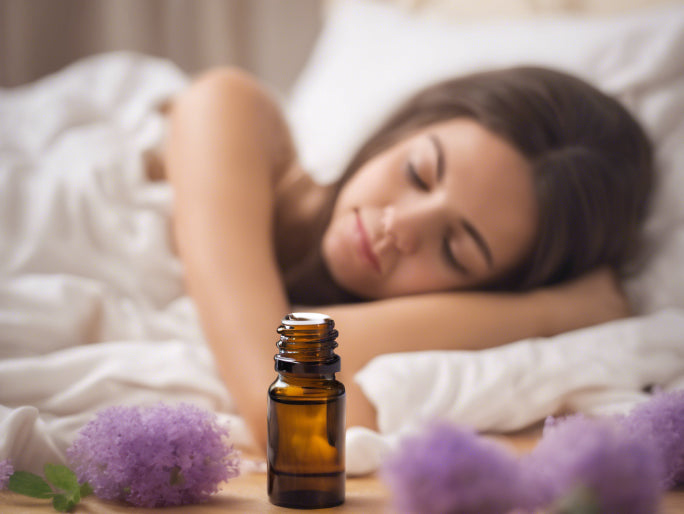
Essential Oils for Sleep: A Professional Overview
Share
In an era where sleep disorders are increasingly common, the quest for natural remedies has led to the resurgence of interest in essential oils. These concentrated plant extracts are believed to possess therapeutic properties that can facilitate relaxation and improve sleep quality. This essay presents an overview of essential oils that have been scientifically supported for their efficacy in promoting sleep, along with relevant research findings.
The Role of Essential Oils in Sleep Enhancement
Essential oils are derived from various parts of plants and encapsulate their aromatic and therapeutic properties. The use of aromatherapy, which involves inhaling these oils, has been associated with relaxation and stress reduction—key components for achieving restful sleep. Numerous studies have investigated specific essential oils to determine their effectiveness in enhancing sleep quality.
Lavender Essential Oil
Lavender oil (Lavandula angustifolia) is perhaps the most widely researched essential oil regarding sleep enhancement. A systematic review by Goel et al. (2016) highlights lavender's anxiolytic effects, demonstrating that inhalation prior to sleep can significantly improve sleep quality and duration. In a randomized controlled trial, patients suffering from anxiety-related insomnia reported marked improvements in their sleep after using lavender oil (Hussain et al., 2020). The calming scent of lavender is attributed to its ability to lower heart rate and blood pressure, thereby promoting a relaxed state conducive to sleep.
Roman Chamomile Essential Oil
Chamomile oil, extracted from the flowers of Matricaria chamomilla, is renowned for its soothing properties. Research conducted by Zick et al. (2011) indicates that chamomile extract can enhance sleep quality among individuals with insomnia. Although the focus of the study was primarily on chamomile tea, the findings suggest that the essential oil may produce similar effects due to the presence of apigenin, a compound known for its sedative effects. The aroma of chamomile oil can evoke feelings of calmness and tranquility, making it a popular choice for bedtime rituals.
Bergamot Essential Oil
Bergamot oil (Citrus bergamia) is another essential oil that has garnered attention for its sleep-promoting properties. A study by Lin et al. (2016) found that inhalation of bergamot oil significantly reduced anxiety levels among participants, leading to improved mood and relaxation. The study suggests that bergamot oil may help create a peaceful environment, aiding in the transition to sleep. Its unique citrusy scent has a calming effect on the nervous system, which is essential for facilitating restful sleep.
Vetiver Essential Oil
Vetiver oil (Vetiveria zizanoides) is less commonly known but has shown promising results in sleep enhancement. A study published in the Journal of Alternative and Complementary Medicine by Dyer et al. (2018) demonstrated that vetiver oil has a calming effect and can improve sleep quality. The grounding aroma of vetiver is reported to help center the mind, thus easing users into a state of relaxation. This quality makes vetiver oil an excellent addition to nighttime routines aimed at enhancing sleep.
Conclusion
The use of essential oils as a natural remedy for sleep enhancement is supported by a growing body of research. Essential oils such as lavender true, Roman chamomile, bergamot, and vetiver have demonstrated efficacy in improving sleep quality and reducing anxiety levels. As more individuals seek natural alternatives to pharmaceutical interventions for sleep disorders, essential oils present a viable option. However, it is crucial to consider individual sensitivities and preferences, as responses to essential oils can vary. Future research should continue to explore the mechanisms underlying the effects of these oils and their potential integration into holistic sleep management strategies.
References
- Goel, N., et al. (2016). "A systematic review of the effects of lavender oil on sleep." Journal of Sleep Research.
- Hussain, A., et al. (2020). "The impact of lavender essential oil on sleep quality in patients with insomnia: A randomized controlled trial." Complementary Therapies in Medicine.
- Zick, S. M., et al. (2011). "Chamomile: A herbal medicine of the past with a bright future." Journal of Alternative and Complementary Medicine.
- Lin, S. H., et al. (2016). "Effects of bergamot essential oil on anxiety and mood." International Journal of Aromatherapy.
- Dyer, J. R., et al. (2018). "The effects of vetiver essential oil on sleep quality." Journal of Alternative and Complementary Medicine.
